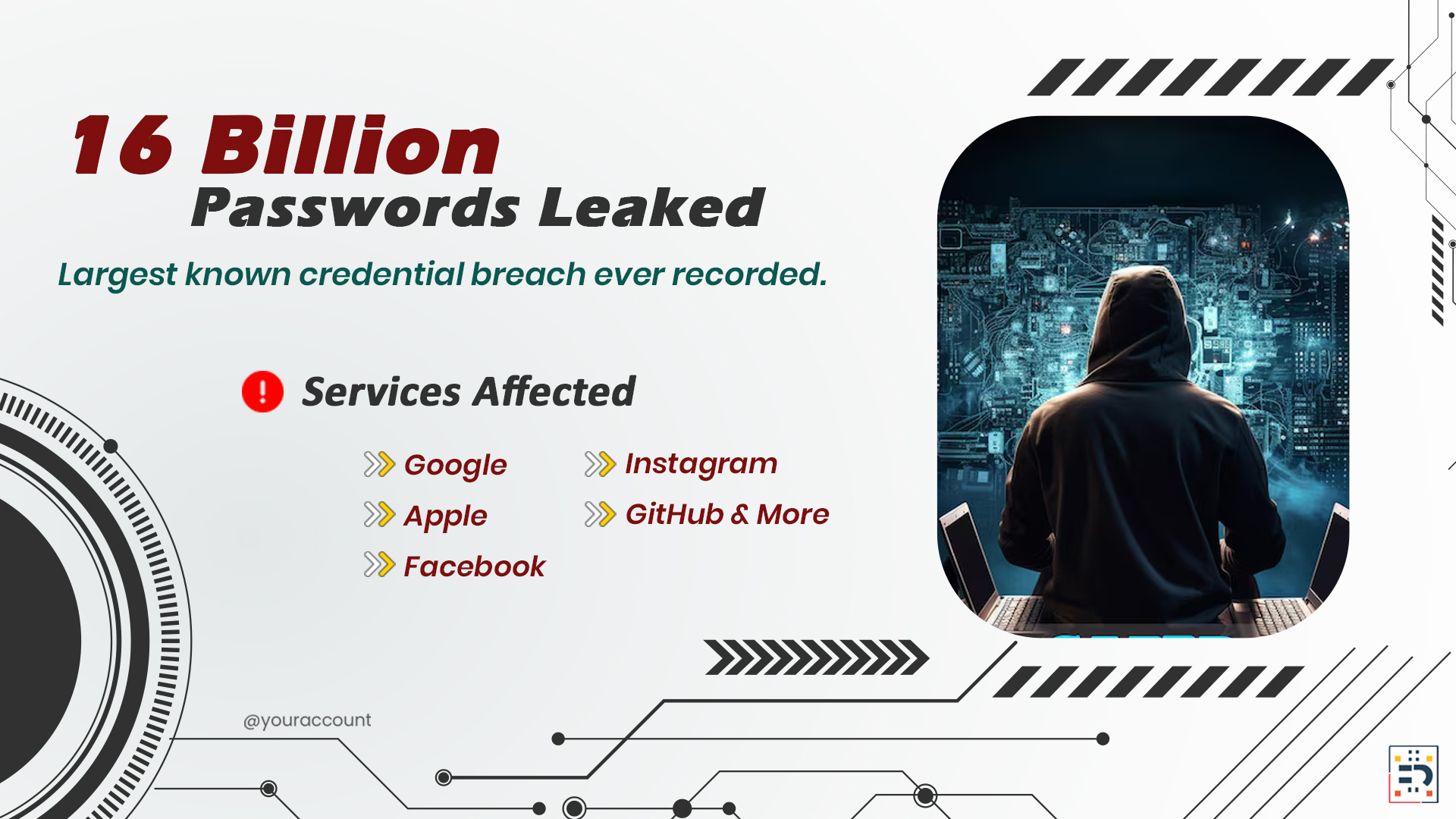Cybersecurity firm Cybernews has uncovered an unprecedented breach: 16 billion login credentials from 30 separate datasets, each ranging from tens of millions to over 3.5 billion records. This isn’t recycled old data—most of it is fresh, weaponizable intelligence exposed due to infostealer malware that siphons credentials directly from infected devices.
Source: news.com.au
Which services are affected?
The datasets include credentials for major platforms such as:
- Google (Gmail, Android)
- Apple
- Facebook & Instagram
- GitHub, Telegram
- Even government portals, VPNs, and developer tools.
Why this matters
- It’s the largest known credential leak to date—surpassing previous high-profile breaches.
- The data’s structure (URL + username + password) makes it easily exploitable for mass phishing campaigns, credential stuffing, identity theft, ransomware, and business email compromise.
Source: cybernews.com
- Cybernews calls it a “blueprint for mass exploitation”, offering threat actors a ready-made trove ripe for automated hacking attacks.
How to Protect Yourself
- Change your passwords immediately. Especially for Google, Apple, Facebook, and other major services.
- Enable Two‑Factor Authentication (2FA). This adds a crucial layer of protection beyond just passwords.
- Use a Password Manager. Generate strong, unique passwords for every account—no reusing allowed.
- Switch to Passkeys (biometrics or device-based authentication). Google, Microsoft, and experts advocate replacing passwords altogether for better security.
- Scan for leaks. Use tools like “Have I Been Pwned” or Cybernews leak checker to see if your credentials were exposed.
- Stay vigilant. Watch for phishing attempts, suspicious sign-in alerts, and unrecognized account activity.
Takeaway
This isn’t just a tech story—it’s a global wake-up call. With 16 billion credentials leaked, it’s a watershed moment for online security. Even if your password survived previous breaches, this one may have hit it. The time to act is now: update login credentials, fortify accounts with 2FA or passkeys, and keep an eye out for unusual activity.
By adopting better password habits today—unique credentials, reliable password managers, and modern authentication—you can significantly reduce your risk, even in the face of large-scale data hunts like this.


